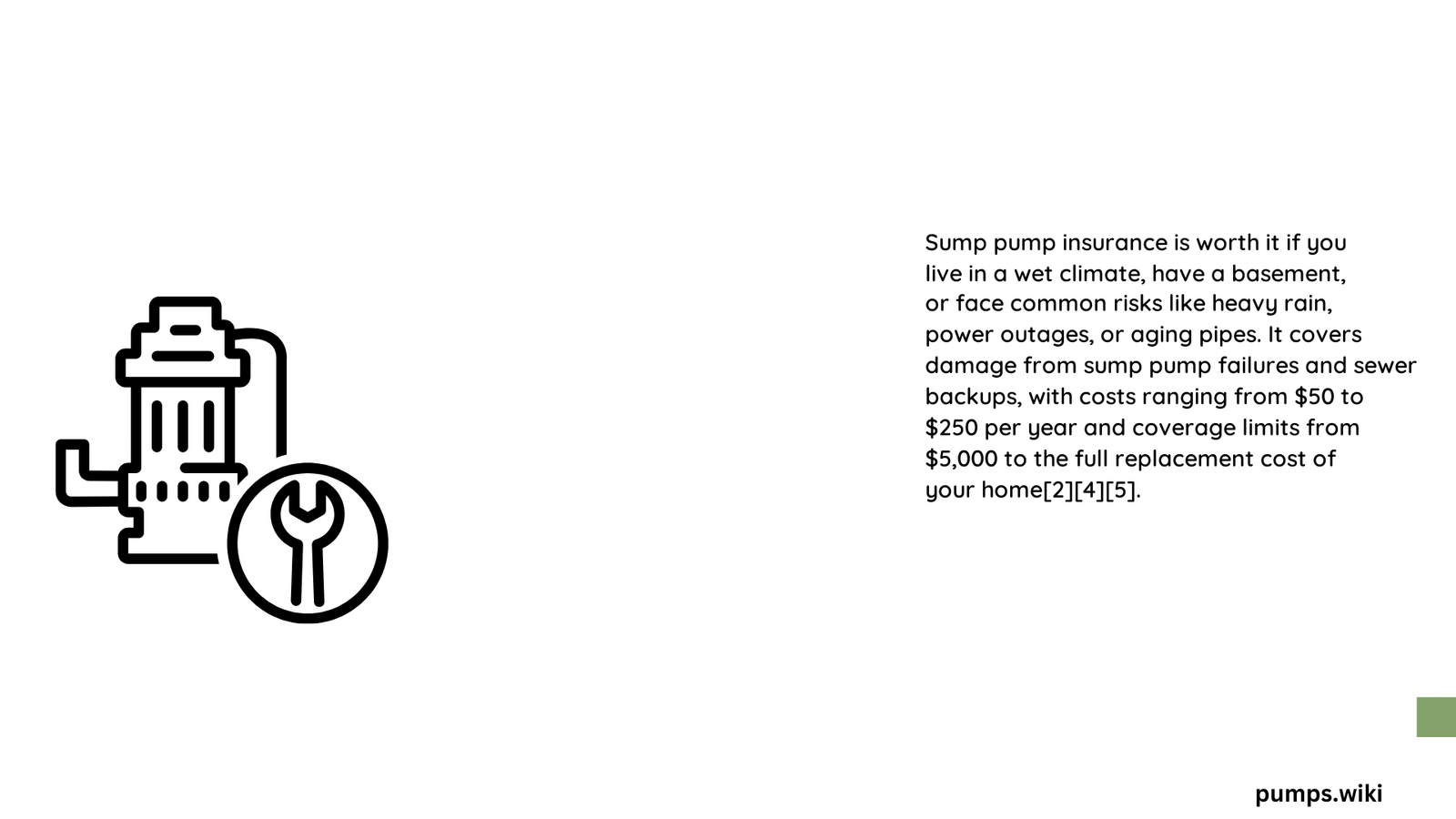Sump pump insurance offers critical financial protection against water damage and backup scenarios that could potentially cost homeowners thousands of dollars in repairs. Homeowners face significant risks from basement flooding, sewage backups, and water-related damages, making insurance coverage a strategic investment for protecting property and minimizing unexpected financial burdens. Understanding the nuanced aspects of this specialized insurance can help you make an informed decision about safeguarding your home’s infrastructure and personal belongings.
What Makes Sump Pump Insurance Valuable?
How Much Can Water Damage Cost Homeowners?
Water damage from sump pump failures can result in extensive financial losses:
| Damage Type | Potential Cost Range |
|---|---|
| Basement Flooding | $2,000 – $20,000 |
| Structural Repairs | $5,000 – $50,000 |
| Personal Property Replacement | $1,000 – $10,000 |
| Mold Remediation | $500 – $6,000 |
What Specific Risks Does Sump Pump Insurance Cover?
Comprehensive sump pump insurance typically protects against:
- Water Backup: Damages from sewage and drainage system failures
- Structural Damage: Repairs to walls, floors, and foundation
- Personal Property: Replacement of damaged furniture and electronics
- Mold Mitigation: Initial remediation expenses
- Temporary Housing: Coverage for alternative living arrangements during repairs
Why Standard Homeowners Insurance Falls Short?
Most standard homeowners insurance policies exclude:
– Gradual water damage
– Sewer line backups
– Flood-related incidents
– Maintenance-related failures
How to Evaluate Insurance Cost-Effectiveness?

What Determines Premium Rates?
Several factors influence sump pump insurance premiums:
- Home’s geographical location
- Age of plumbing infrastructure
- Basement elevation
- Previous water damage history
- Chosen coverage limits
What Are Typical Coverage Options?
| Coverage Level | Annual Premium | Maximum Payout |
|---|---|---|
| Basic | $50 – $100 | $5,000 |
| Standard | $100 – $200 | $15,000 |
| Comprehensive | $200 – $250 | $25,000+ |
When Should Homeowners Consider Additional Coverage?
Recommended for properties with:
– Older homes (30+ years)
– Basements below ground level
– History of water-related issues
– Located in flood-prone regions
– Minimal existing drainage infrastructure
What Claims Process Can Homeowners Expect?
How to Successfully File a Claim?
- Document damage thoroughly
- Contact insurance provider immediately
- Prevent further damage
- Provide maintenance records
- Submit detailed repair estimates
- Cooperate with insurance adjuster
What Documentation Proves Critical?
Essential claim documentation includes:
– Photographic evidence
– Repair estimates
– Maintenance logs
– Professional assessment reports
– Itemized list of damaged property
Practical Recommendations
Who Benefits Most from Sump Pump Insurance?
- Homeowners in flood-prone areas
- Properties with finished basements
- Regions experiencing increased precipitation
- Homes with aging infrastructure
What Preventative Measures Complement Insurance?
- Regular sump pump maintenance
- Install battery backup systems
- Implement proper drainage solutions
- Conduct annual professional inspections
Final Verdict: Is Sump Pump Insurance Worth It?
For most homeowners, sump pump insurance represents a prudent, cost-effective risk management strategy. The relatively low annual premiums compared to potential repair costs make it a wise financial decision, especially for properties with elevated water damage risks.
Key Takeaway
Invest in protection before disaster strikes – sump pump insurance offers peace of mind and financial security.
